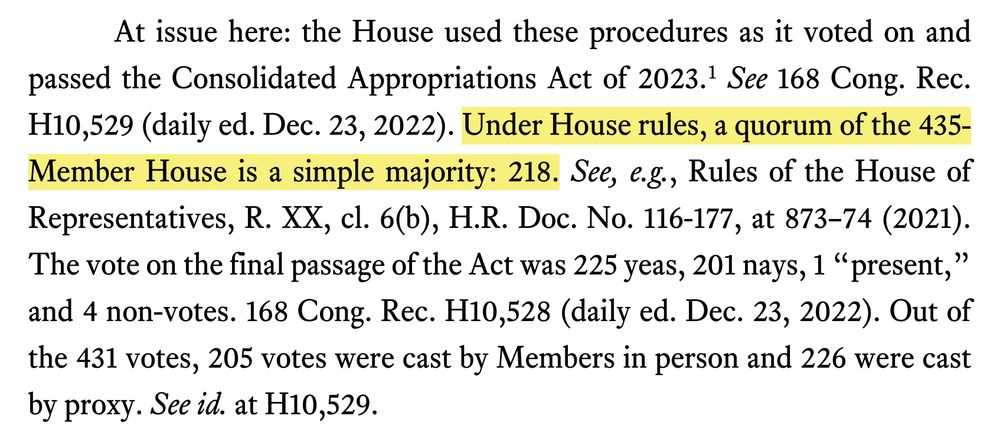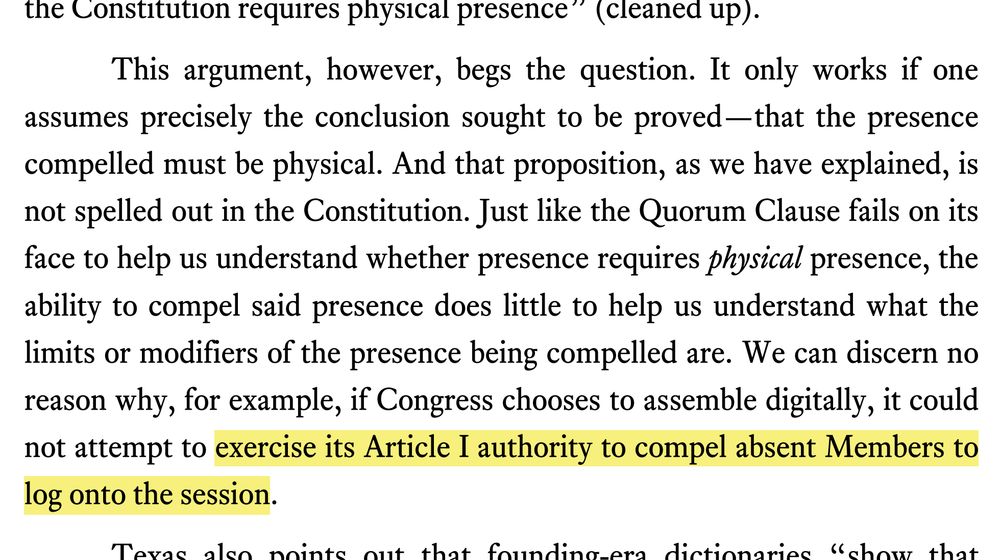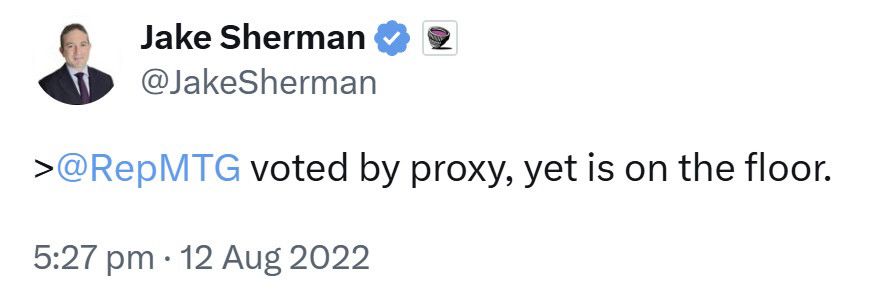4. Under the precedents, a quorum is ‘a majority of those Members chosen, sworn, and living whose membership has not been terminated by resignation or by the action of the House’. There were 431 members at the time, so a quorum was 216.
Replies
5. Tbc, Roy reserved the right to object to tabling the motion to reconsider the vote, not to anything quorum-related. (At least they get the key point here: that no member made a point of order that a quorum was not present.)
How does CA5 know less than a majority were physically present? There's just not a record of that, and I can't imagine defendants admitted to that.
A list of members voting by proxy was printed in the Record after each vote (but see ⬇️).
Exactly. Voting in person necessarily means you were physically present, but voting by proxy doesn't mean anything without door attendance records, which don't exist. (Before remote voting, in the Canadian Parliament you had to be in your seat during the entire voting procedure or it didn't count.)
If Roy had made a point of order and the chair had ruled a quorum was present, for SCOTUS to later rule a quorum had not been present... Well, I can see that, because clearly it would be less intrusive of the House's explicit authority under Art I, Sec 5… 1/
… than Congress setting a gifts rule for SCOTUS would be intrusive of the Court's penumbras-and-emanations authority Art III. 2/2
Overall, much better than the district court’s opinion. Turning to the big stuff...
6. I won’t go into the enrolled-bill rule too much, because I am not an expert in such things, but instinctively, I was surprised they held that the matter is justiciable. The reasoning seems plausible, though (TL;DR: this is a question of constitutionality, not of facts).
8. Good to know that unanimous-consent agreements (and, similarly, voice votes and divisions) are not unconstitutional.
Two extra points I like to make on this issue: 10. Proxy voting existed in Parliament. historyofparliamentblog.wordpress.com/2018/10/01/p...
BTW, my absolute favourite procedural fact: In the Lords, proxies could not be used in a committee of the whole House. Several hundred years later, the House of Representatives also did not allow proxy voting in the 🐄. (I assume they just forgot; they fixed it in 2022.)







